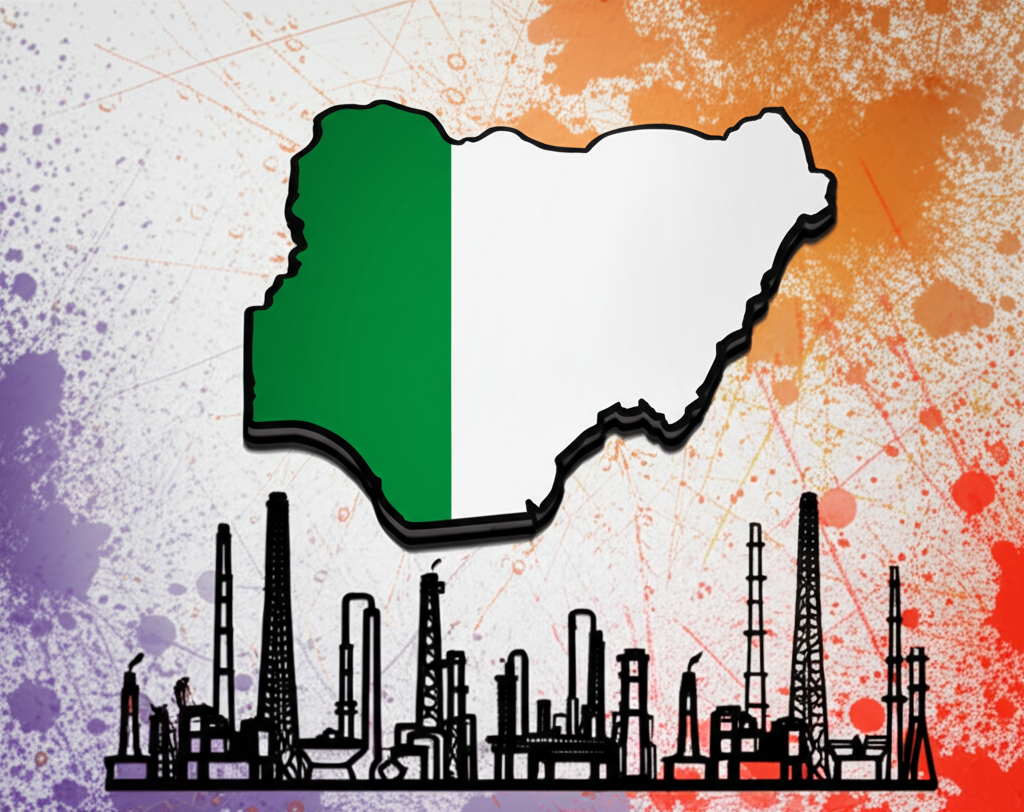As the Naira-for-Crude policy hangs in the balance, Nigerians are bracing for potential fuel price hikes. HURIWA is calling on President Tinubu to extend the deal, but will it be enough to prevent economic hardship? This article dives deep into the implications of this crucial decision.
- The Stakes: Continuation of the Naira-for-Crude policy is crucial for fuel price stability.
- HURIWA’s Plea: Urging President Tinubu to extend the deal to avoid economic distress.
- Potential Impact: Failure to extend could lead to fuel price hikes and economic instability.
- The Dangote Factor: Discussions are ongoing between NNPC and the Dangote refinery.
Naira-for-Crude Policy: A Lifeline for Nigerians?
The Naira-for-Crude policy, a six-month agreement between the Dangote refinery and the Nigerian government, has expired, leaving many Nigerians worried about the future of fuel prices. The Human Rights Writers Association of Nigeria (HURIWA) is now appealing to President Bola Tinubu to extend this initiative.
Launched in October 2024, the policy allowed local refineries, particularly the Dangote Petroleum refinery, to purchase crude oil in Naira instead of US dollars. This was designed to ease pressure on the Naira, cut transaction costs, and ensure a steady supply of petroleum products within Nigeria.
How the Naira-for-Crude Deal Works
Under this arrangement, the Nigerian National Petroleum Company Limited (NNPC) supplies crude oil to domestic refineries, who then provide refined petroleum products for the local market. All transactions are conducted in Naira, aiming to stabilize fuel prices and support the local currency by reducing the demand for foreign exchange in the oil sector.
Challenges and Hiccups
The policy hasn’t been without its challenges. The Dangote refinery recently had to temporarily suspend fuel sales in Naira due to discrepancies between Naira sales and dollar-denominated crude purchases. This caused concerns about potential petrol price increases and further strain on the Naira.
Why HURIWA is Concerned
HURIWA fears that any change to the current arrangement could lead to sudden and sharp increases in fuel prices, transportation costs, and overall inflation. This would hit ordinary Nigerians hard, especially those already struggling with poverty.
“Any alteration to this deal would mean excruciating hardships and the massive affliction of poverty on millions of the already suffering, struggling and multidimensionally poor households,” HURIWA stated.
The Ripple Effect: Job Losses and Economic Depression?
HURIWA also warns that higher fuel prices could force many small and medium-scale businesses to shut down, leading to job losses. With businesses relying on petrol-powered generators for electricity, increased operational costs could be the final nail in the coffin for many.
Current Situation: Petrol Prices on the Rise
The uncertainty surrounding the Naira-for-Crude deal has already led to an increase in petrol prices, from about N860/litre to over N930/litre within a week. Dealers are blaming the hike on the failure to extend the deal, and some project that prices could hit N1,000/litre if nothing is done.
HURIWA’s Plea to Tinubu
HURIWA is urging President Tinubu to show compassion and ensure the continuation of the Naira-to-crude deal. They argue that his administration’s economic policies have already pushed millions into poverty, and further fuel price hikes would only worsen the situation.
What’s Next?
Discussions are ongoing between NNPC and the Dangote refinery to potentially renew and extend the naira-based crude supply agreement. The outcome of these discussions will be crucial for the stability of fuel prices and the Nigerian economy.
The clock is ticking, and Nigerians are waiting to see if President Tinubu will act to prevent further economic hardship.
Nigeria’s Reliance on Oil: A Quick Look
Nigeria, Africa’s largest oil producer, heavily relies on the oil sector for revenue. According to OPEC, Nigeria’s crude oil production averaged 1.25 million barrels per day in 2023. The Naira-for-Crude policy aimed to reduce the country’s dependence on foreign exchange for oil transactions, a move that could have significant implications for the nation’s economy.
| Year | Crude Oil Production (bpd) |
|---|---|
| 2021 | 1.42 million |
| 2022 | 1.23 million |
| 2023 | 1.25 million |


